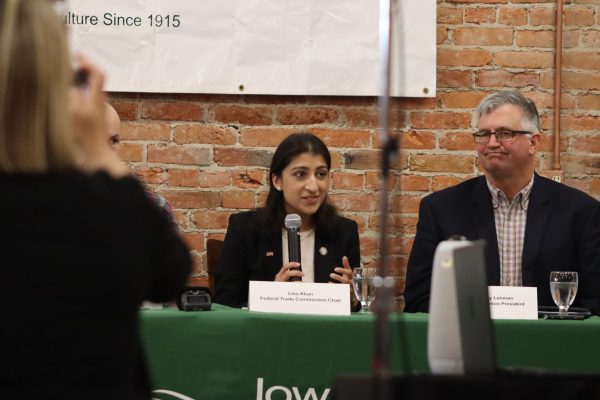Definition and Societal Constructions of Gender
February 25, 2014
Gender is such a big, broad thing, said Sarah Miller, president of Gamma Rho Lambda.
“What people don’t realize is there’s a difference between [biological] sex and gender,” said Jacqueline Horsfall, a sophomore majoring in Communication Studies.
Biological sex pertains to the parts you were born with and gender is what you portray yourself as, said Horsfall.
Society constructs gender by assigning qualities to being masculine or feminine, but in reality, there’s this whole spectrum of behaviors, said Joel Geske, associate professor at the Greenlee School of Journalism and Communications.
You may have people who are biologically female, who express themselves in clothing, actions and mannerisms as being very masculine, and you may have people who are born biologically male who express themselves in a more feminine way, said Geske.
Miller likes to use an analogy when explaining gender.
“Biological sex is like your body, but gender is in your head,” said Miller.
“Lots of times, people will confuse gender with sex or sexuality,” said Geske.
“The whole perception of gender is like a fish swimming in water. You’re just swimming through this culture and lots of people don’t notice it, they just take it for granted, said Geske, “it’s an awareness.
Geske’s opinion is that gender construction begins from the first day you’re born. He paints a picture by giving an example.
“You go to the hospital, and how do you know the difference between the babies? They have a blue cap or they have a pink cap. That happens when you are hours old,” said Geske.
“There’s also a whole grouping in there called intersex that isn’t necessarily male or female,” said Geske.
So you have this range of biological sex, you have this range of sexuality, and you have this range of how people choose to portray themselves, yet society wants to bring us back and say you need to fit in this narrow little box, said Geske.
“To me, that’s a lot of what gender is, is those societal expectations,” said Geske.
Horsfall thinks it’s key to evaluate yourself, with all of these societal influences.
“Do I like this because I like this, or because everyone’s telling me to like this?” said Horsfall. It’s important to be yourself.
Miller didn’t realize the difference between gender and biological sex until she got to college.
“When I was younger, we didn’t talk about these things,” said Miller.
“Growing up, I thought that because I was a female I had to act a certain way and really conform to a certain way,” said Miller.
“It’s so engrained in our society that this is what a man does, and this is what a woman does. It’s really hard to be anything but those two things, especially when you’re a kid,” said Miller.
After her first year and a half at Iowa State, Miller began to change her wardrobe and how she acted to fit more with herself.
That was a big thing for me, realizing that you can be female, but not express yourself femininely, said Miller.
For many people, before they came to Iowa State, they may not have been exposed to the range of people and options that we have here, especially if they came from a small community with no role models, said Geske.
















